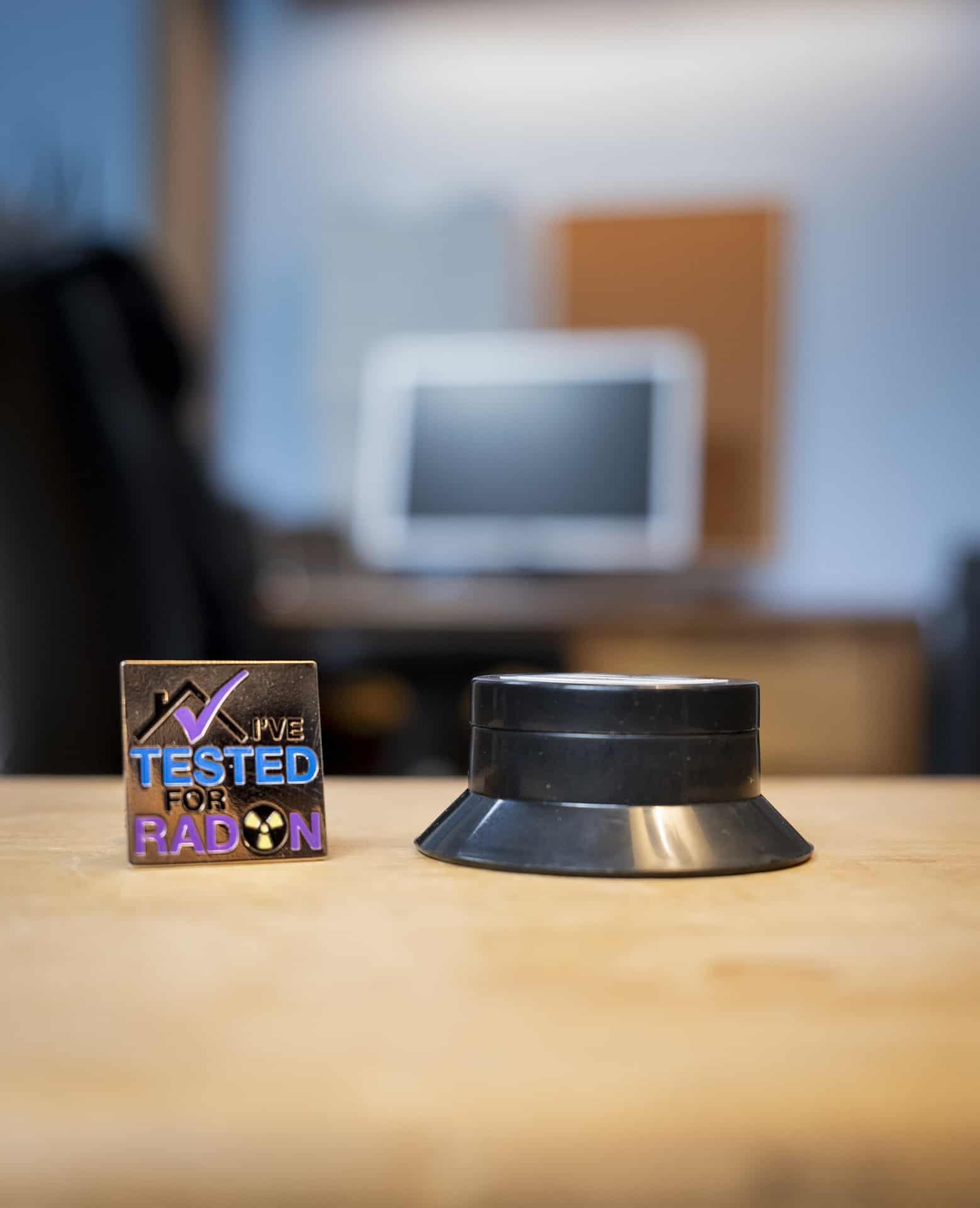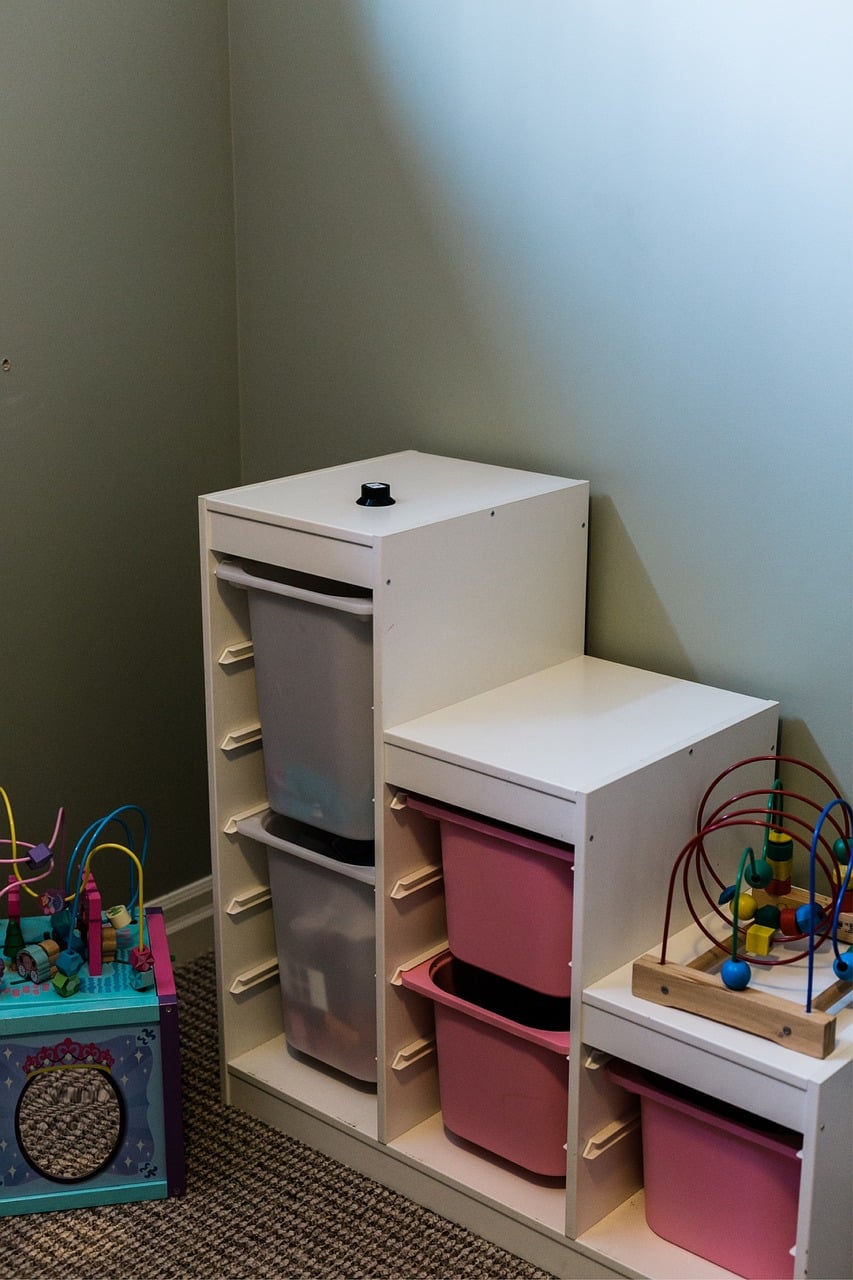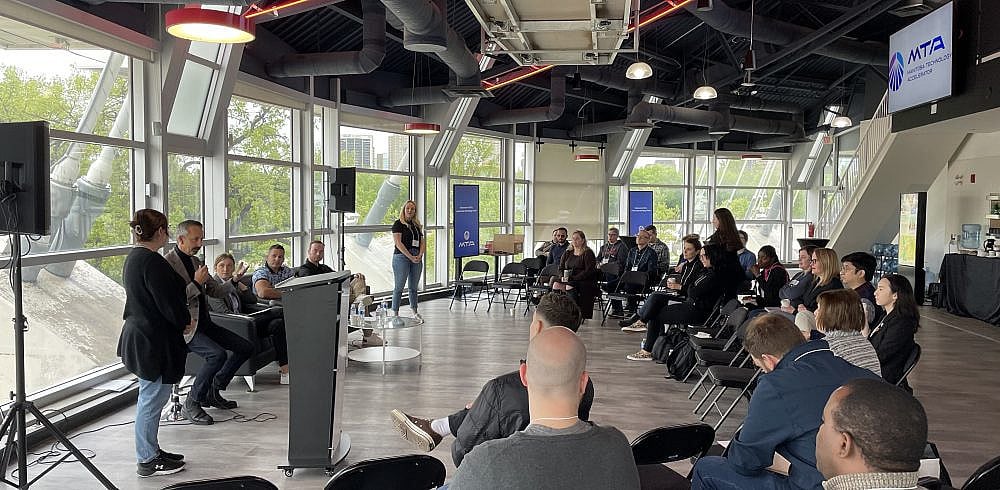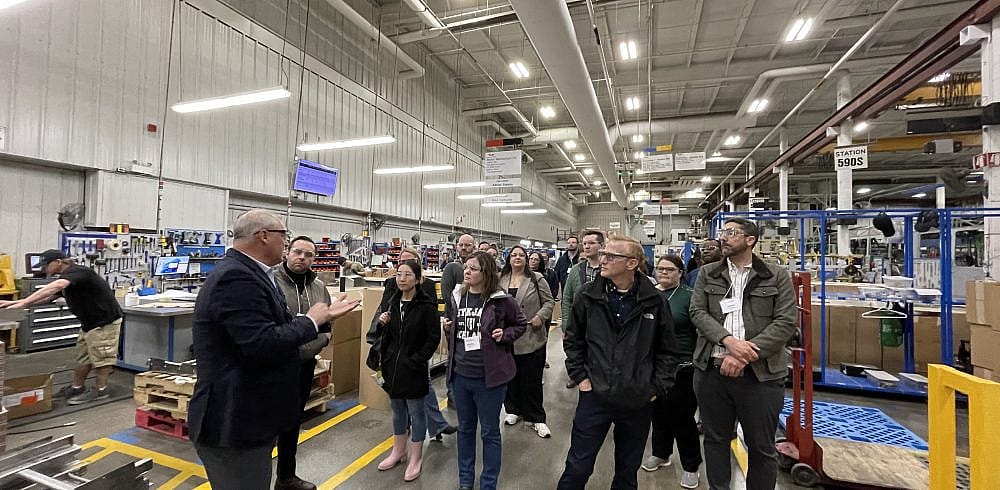5-minute read
Written by Casey Clair, Energy & Climate Advocate
Community-based sustainability is a key strategy in developing flourishing eco-conscious businesses. At The Chamber, it is important for us to promote sustainable businesses and their green initiatives. In our Sustainability Spotlights, we will shift our focus towards sustainable practices and the people that adopt and amplify them.
Welcome to November’s Sustainability Spotlight featuring Adam Anderson, Government Relations Officer & Health Program Analyst from The Manitoba Lung Association. The Manitoba Lung Association provides resources to mitigate harmful radon gas leaks and numerous guides on improving lung health. On top of this, they issue research grants toward lung health and mitigation grants for those negatively impacted by radon.
 It’s Radon Awareness Month!
It’s Radon Awareness Month!
Adam – and The Manitoba Lung Association – want to make sure Manitobans are prepared for the winter when harmful gases such as radon are more easily trapped indoors along with your heat.
But what is radon?
“Radon is a gas. You can’t see it. You can’t smell it. You can’t taste it. The only way to know if it’s in your home is to test for it,” says Adam.
“It’s a naturally occurring gas that comes from the decay of radium in the soil. So that’s why Western Canada has higher levels of radon…just because we have more uranium-rich soil in the prairie provinces.”
There are risks associated with long-term exposure to radon– it is the second-leading cause of lung cancer after smoking. This is why it’s imperative for both businesses and homeowners to conduct long-term tests. Radon is harmless when exposed to the outdoors, but becomes a lurking menace when sealed inside your home or business. This can occur in new or old buildings; therefore it’s recommended to test if you haven’t yet, no matter where you live.
“The other issue with that is as homes become more energy efficient they’re greater at holding in heat. We’re reducing our energy use, but you’re also increasing your risk to indoor radon exposure because the same product sealants and building practices that help hold that heat in also now hold in radon gas.”
Anderson notes that older properties are at a similar risk due to cracks in foundations, poor insulation and the overall permeability of radon through the soil.
So, what can you do to eliminate these risks?
There are several types of radon tests available, but Adam recommends the three-month long-term test for accurate readings. To start: you register for the radon test online, then place it in the lowest level of your home/office that you and others frequent the most. You then leave the test there for at least three months and send it off to the company’s laboratory. A long-term test is suggested due to fluctuations in airflow from day to day such as: opening and closing windows and doors and adjustments in air-conditioning or heating. Make sure to check online to see how many becquerels of radon is acceptable until mitigation is required – the amount changes between homes and office buildings.
“Did I get it from my home? Is my family at risk?”
Radon leaks – over long periods of time – can increase your risk of lung cancer. That’s why The Manitoba Lung Association has created the Lungs Matter – Radon Mitigation Community Grant Program.
“We provide radon mitigation grants for low-to-moderate income households as well as people with lung cancer, ” said Adam. “Our hope is to mitigate some of those costs for people by providing a grant for low-income households because the issue there is radon can affect everybody, but it doesn’t affect everybody equally.”
So don’t hesitate to take advantage of this Grant Program and check out The Manitoba Lung Association for resources on radon, air quality, lung health and more! If you have any questions, you can reach staff through their website.
For ways to seal your business against radon – and the cold! – contact me (Energy & Climate Advocate– Casey Clair) by phone: (204) 688-1304 or email: [email protected].
*Photos acquired through Pixabay (Free for commercial use)




